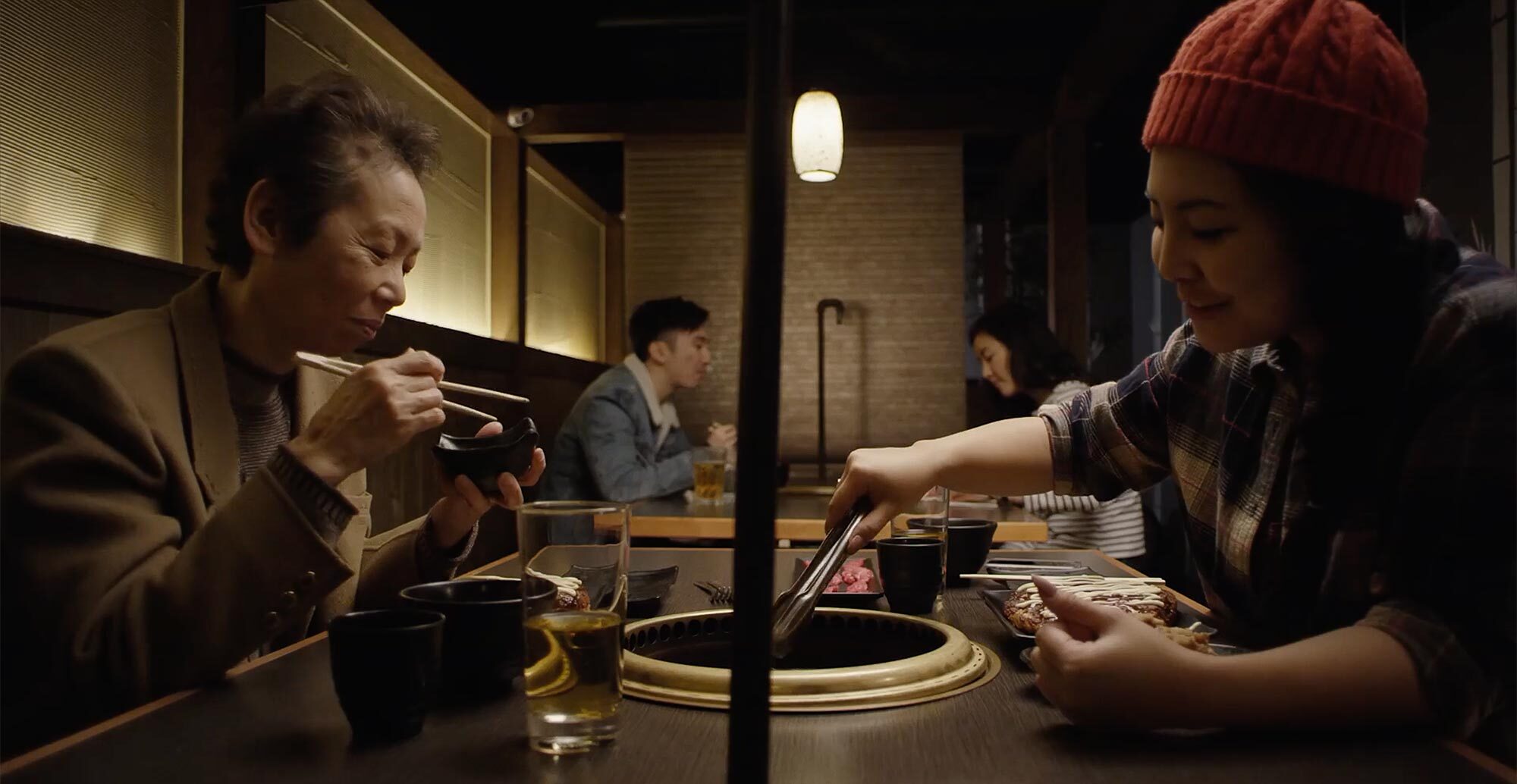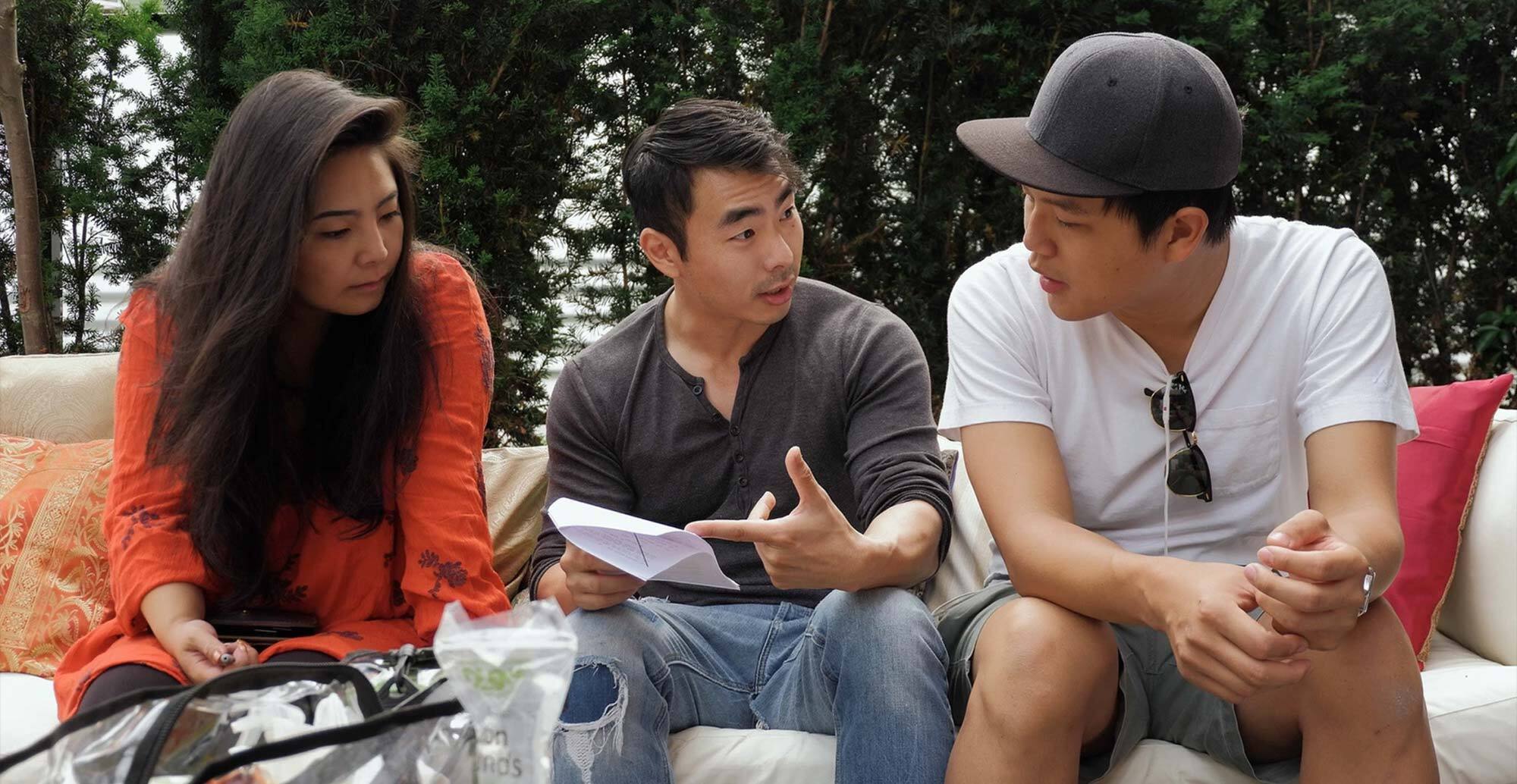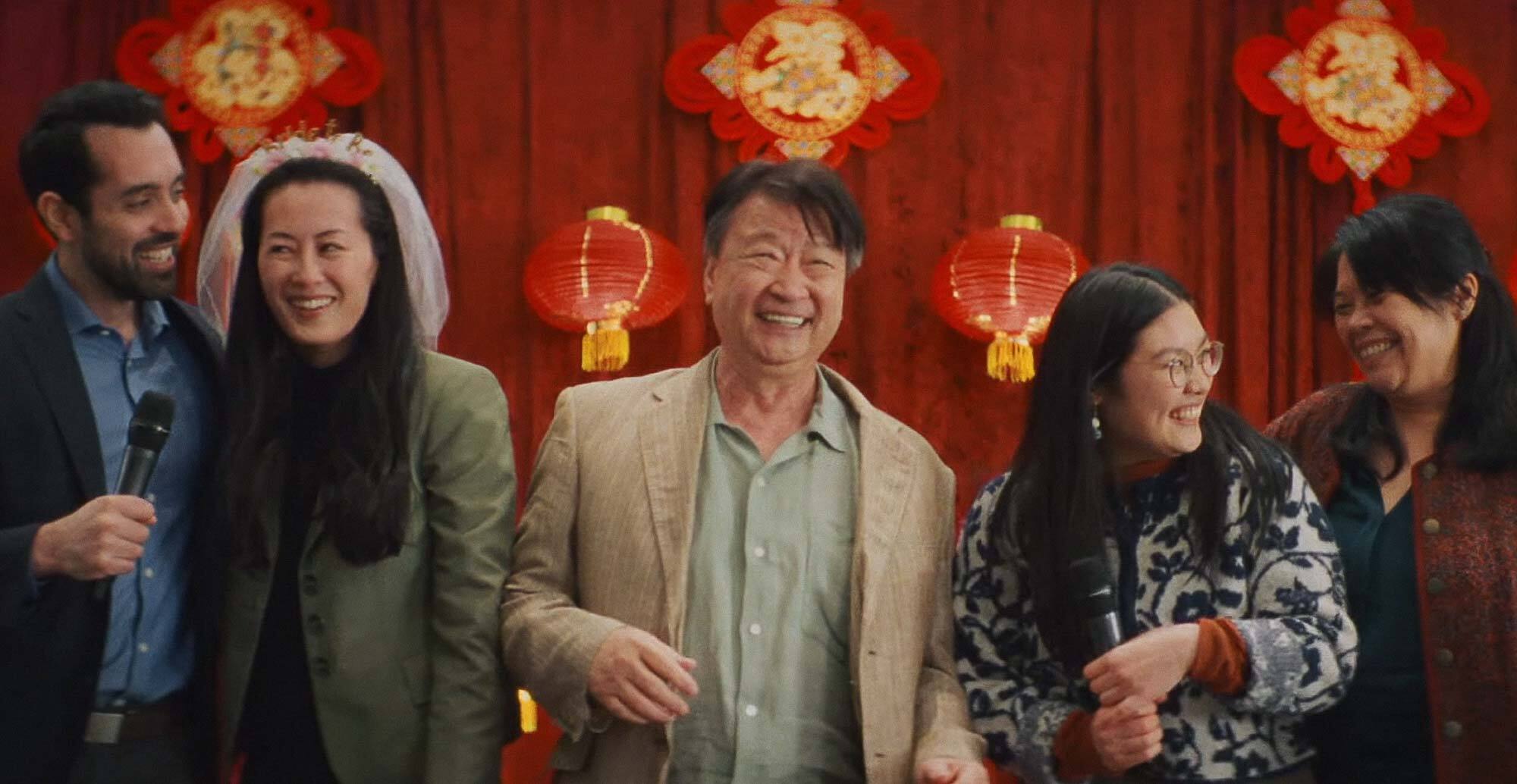Last month, we spoke with filmmaker, actor, and VFS alum Mayumi Yoshida about writing and directing Amanda Sum’s music video for “Different Than Before,” which was nominated for the Video of the Year at the 2023 Juno Awards and won the Jury Award for Best Music Video at South By Southwest (SXSW)!
Our conversation was too brilliant to fit into one blog post, however! Mayumi also spoke to us about adapting her short film “Akashi” into a feature, how she led efforts to make Telefilm Canada funding more equitable, deciding when to let a project be finished, and the importance of building your community.
We spoke earlier about “Akashi.” Last July you announced that you received funding from Telefilm Canada to develop it into a feature film. Congratulations! Are you able to share any details about production, or is it all hush-hush at this point?
No, it's not hush-hush! Even just getting the funding was such a process. I was an international student at VFS and only got permanent residency in 2015, which opened a lot of doors, but one of the things that I still kept hitting as a filmmaker was the language requirements in these funding systems. We actually got denied the first time we applied for funding at Telefilm because of the language restriction. It had to be 50% in English, French or an indigenous language, and ours was 80% Japanese and 20% English. But when we got denied, we didn't even get adjudication. We just got denied completely, and we thought, “Wait, wait, wait, you say you want diversity and authenticity, and you can’t not see a project just because it doesn’t qualify for your language restriction.”
 Mayumi Yoshida (right) earned numerous accolades for writing, directing, and starring in “Akashi” (2017).
Mayumi Yoshida (right) earned numerous accolades for writing, directing, and starring in “Akashi” (2017).So I made a Twitter post—a Twitter rant, I'm sure!—asking what makes a Canadian film Canadian? I wrote about how language is so integral to our experience and our culture, and if we want or are demanding authenticity, this rule doesn’t let us do it. It’s so limiting. A lot of filmmakers and BIPOC folks really resonated with that, which created a petition. Other producers and people got involved, and we received 300 something signatures from across Canada. We sent it to Telefilm, and they said “Heard, okay.” We were asking, “What does that mean?” I was later interviewed by CBC asking, “What's going to happen?” I said, “We don't know. We're going to hear from Telefilm. The ball is in their court.”
Later that year, they announced the new rules for feature film funding and the restriction was gone from the guideline. We got to submit again, and received funding last July, which was amazing. It's really been a journey. Now we're planning—I don't want to jinx it—to shoot this fall in Tokyo and Vancouver.
How do you decide when a project’s done?
It’s hard. I forget which director said, “at one point, you have to decide to abandon, or else you can never move on.” It's good to have a deadline, or a moment of “this is when I decide.” Because your next one has to start, or otherwise it's never complete. I watch all my shorts, even “Different Than Before,” and think, “I could have done that, I could have done this.” You always have shoulda-coulda-woulda, but it's actually nice to have made that decision to move on the next thing, because now I'm creating momentum, rather than staying in place.
Absolutely! If you were still working on making “Akashi” perfect there never would have been this music video.
That's what I learned. Akashi is my first feature, and writing was so incredibly hard. It's been six years of writing. The first year I purposely decided not to make film and to concentrate my energy on developing it.
I quickly realized after that year that I had major FOMO from not being productive in my own creative journey, because I was all by myself writing, rather than directing and working with crew and actors. I spoke to other filmmakers and producers about that and they all told me, “Oh no, you have to keep making it while you're making it. Don't stop producing and putting out your work. That is what's going to end up actually getting you what you want right now, which is the future.”
That was absolutely true. I've now done about ten short films since I started Akashi and all these little opportunities have led to festivals, which have led to meetings, which have led to opportunities in different countries. There are times when I worry, “am I dispersing too much energy from what I should be putting into this?” But those led to more things. What you really want to work on will have time when it blossoms, but don't stop all the other things that will help it blossom in the end.
 Mayumi co-directed “The Day We Met” (2018) with previous collaborators Lee Shorten (centre) and Nach Dudsdeemaytha (right).
Mayumi co-directed “The Day We Met” (2018) with previous collaborators Lee Shorten (centre) and Nach Dudsdeemaytha (right).Because you just never know. One of my things that I kept saying at South By was “just shoot your shot.” You don't know what will stick, so keep throwing that ball. And then when it sticks, you're moving into next stage because you just kept doing it. When you get used to doing that, it doesn't feel so hard or like “this is my last thing and I'll never get another chance.” You don't know that.
A small thing that I'm learning is that when it starts to become too precious, it’s a red sign. It’s time to let go.
Do you have any last pieces of advice for VFS students going into the industry?
When I was coming out of VFS, you’d hear the quick success stories of “straight out of film school they made this, and they made it all ‘guerrilla’ and went to this festival, and they won this, and now they're on this career trajectory.” Or if you're an actor, it’s “straight out of film school they got an audition, and they booked this, and here they are now.” And sure, there are those people. But even after they “make it,” it's a marathon. They struggle to find what's next and ask “Who am I? What is my voice? Where am I going?”
I feel grateful that I had a lot of time to discover that. I was one of those people who wanted that instant success and strived for that, but it didn't come, obviously, because that's just life. It's a one-in-a-million chance to get that and shoot to the sky, but I don't think it's as positive as we think it is. It gets quite lonely quite quickly.
I feel lucky that at this point in my career I'm starting to make things that are getting more buzz and impact to a lot of people, which is so great, but I have a grounding source of community that keeps me going. Even if any of this didn't work out, I would keep going because I have a support system within my community, my friends, my family. I feel a lot more stable in this very insecure, unstable place! It's being good to people who are good to you. You find your tribe and your community; show up for them and they'll show up for you.
 Mayumi pulled on her community when creating “Different Than Before,” including her The Man from the High Castle co-star Tzi Ma (centre).
Mayumi pulled on her community when creating “Different Than Before,” including her The Man from the High Castle co-star Tzi Ma (centre).There are some people who take, take, take and just keep going forward. But the people who you meet out of nowhere, or in one thing that you did, you'd be surprised where you run into them again. So many times that's happened to me. On a show that I did last year, many times I met people who I worked with ten years ago. I just visited LA and met up with a friend that I was in VFS with. He was in film production and I was in acting, but we were in the same friend circle from cross-department parties and stuff. He now works in LA, and he's a great editor and is working on lots of things. It's so exciting to meet in the middle and talk about how far we’ve come, and that we're both still in the industry: just living day to day and finding out what's going to happen next. Without that it's very hard to stay in the industry. Not only about making money, but just keeping your fire.
Show up for the community and find your people and stay with them. That's what Tilda Swinton said at South By. That's what the Daniels have been doing. They've just won Best Picture [for Everything Everywhere All at Once.] Daniel Kwan previously won this award that I just won. He's been here, and so has Hiro Murai [director of Childish Gambino’s music video for “This Is America.”] All these people.
I'm not saying just work with your friends. Always expand your reach and see who you can work with, because that's so fun, but when your community is doing something, show up. It creates a home for you. That will be what will save you and get you through a lot of phases in your life.
As an actor, you’re going to find your pal at midnight that's going to read for you, or when you're just not getting auditions. Or when you're thinking “I feel like I want to start writing and directing.” Find your people who will say “Sure, I'll help you out.” Like my friend from acting class: she's one of my best friends here and she's worked on all of my stuff. She's always there to ground me. I was shooting in Japan, she came just to see and ground me. It's so important to maintain that human connection, because this industry eats you up mentally and physically. You can lose touch of who you are and where you are.
Find your safe space so you can come back to that and then go out to this world. It's so hard when you're in film school because you're like, “Not me. I'm gonna make it.” And you will. It's just easier when you have those people.
Thank you again to Mayumi for being so generous with her time and offering such inspiring advice for creatives of all stripes. If you haven’t already (what are you waiting for?!), go watch “Different Than Before” and check back here for updates on the production of Akashi!
